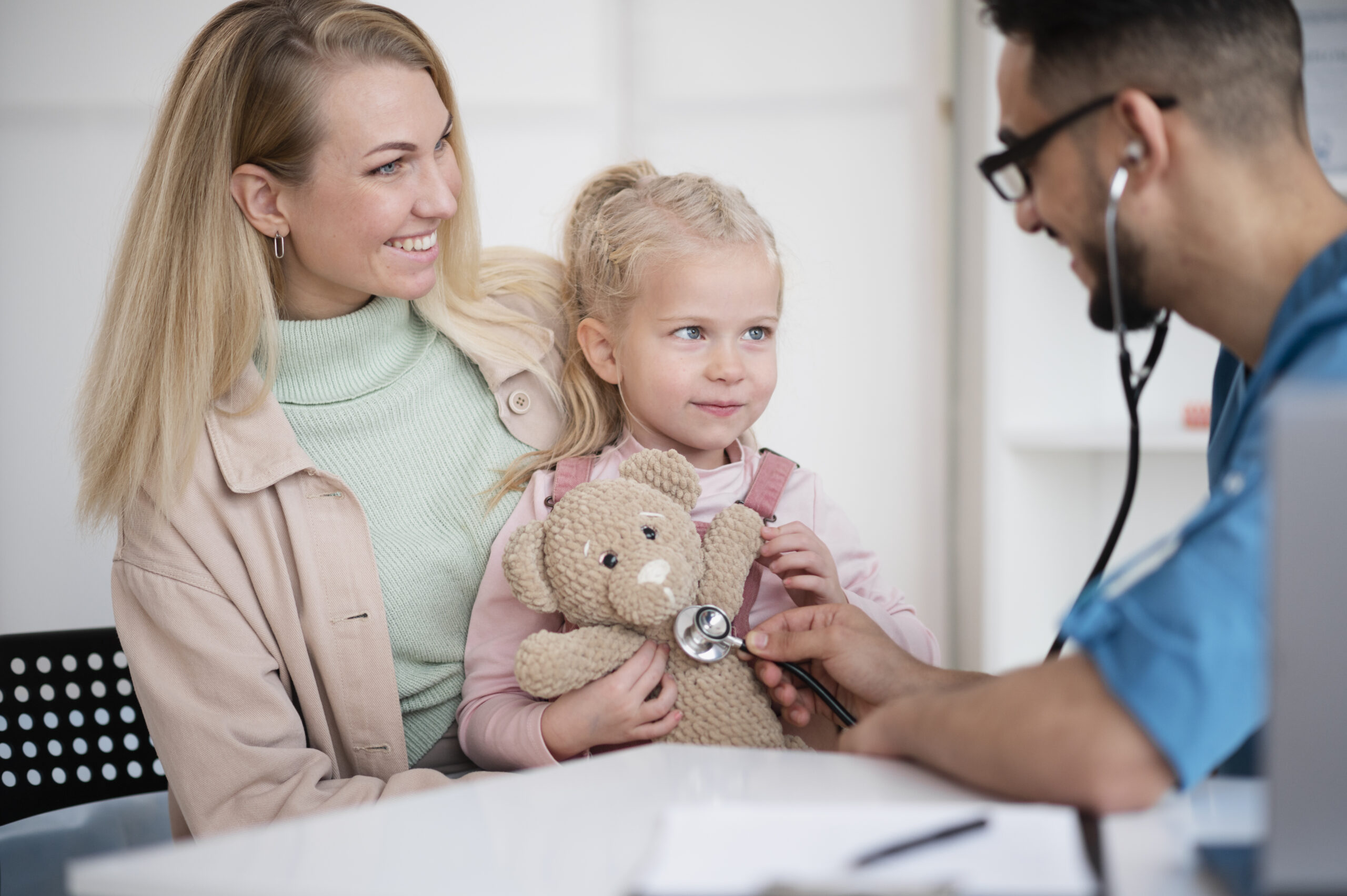PEDIATRICS
About
Pediatrics
Pediatrics is a branch of medicine that focuses on the health, development, and medical care of infants, children, and adolescents, from birth up to the age of 18 (and sometimes up to 21, depending on the country or medical guidelines).
Key Aspects of Pediatrics
Growth and Development, Preventive Care, Diagnosis and Treatment, Specialized Care

How We Treat
Prediatrics
Pediatrics involves a comprehensive approach to treating children’s physical, emotional, and developmental needs. Here are the key ways in which pediatric care is provided
- Regular Checkups and Screenings: Routine visits to monitor growth, development, and milestones.
- Diagnosis and Treatment of Illnesses:Treating common childhood illnesses like colds, flu, ear infections, or rashes.
- Nutritional Support: Offering advice on nutrition for proper growth and healthy eating habits.
- Health Education: Providing advice on diet, lifestyle, and preventive measures for better health.
- Behavioral and Developmental Support:Addressing issues such as ADHD, anxiety, depression, or learning disabilities.
- Multidisciplinary Team Approach: Care provided by intensivists, nurses, and other specialists trained in critical care.
Symptoms of Cancer Care
Cancer can cause a wide range of symptoms depending on the type, location, and stage of the disease. Below are some common symptoms that may indicate cancer:
Fever
Cause: Infections (viral, bacterial), vaccinations, or other illnesses.
Cough and Cold
Viral infections like the common cold or flu.
Rashes
Allergies, infections (e.g., chickenpox, measles), or skin conditions like eczema
Difficulty Breathing
Respiratory infections (like pneumonia or bronchiolitis), asthma, or allergies.
Diarrhea or Vomiting
Viral or bacterial infections, food allergies, or gastrointestinal disorders
Excessive Crying or Irritability
Colic, teething, infections, or discomfort.
Health Tips for Pediatrics

WHY TO CHOOSE
Alephata Multi-Super Speciality Hospital?
Alephata Multi-Super Speciality Hospital is your trusted destination for comprehensive healthcare. With a team of highly skilled specialists and state-of-the-art facilities, we provide exceptional medical care across various specialties. Our patient-centered approach ensures personalized treatment plans tailored to your unique needs, all at affordable and transparent pricing. Equipped with advanced technology and 24/7 emergency services, we are committed to delivering timely, accurate, and compassionate care. Choose Alephata Multi-Superspecialist Hospital for reliable, high-quality healthcare that prioritizes your well-being at every step.
FAQ's
When should I take my child to the pediatrician?
You should take your child to the pediatrician for:
Regular well-child check-ups and vaccinations.If your child shows signs of illness such as fever, rashes, or persistent cough.If your child experiences unusual behavior, growth delays, or developmental concerns.If there are any concerns about nutrition, sleep, or overall well-being.How often should children have check-ups?
What vaccines should my child get, and when?
Vaccinations are an essential part of pediatric care to prevent serious diseases. The vaccination schedule includes:
Infancy: Vaccines for Hepatitis B, Diphtheria, Tetanus, Pertussis (DTaP), Polio, Haemophilus influenzae type b (Hib), Rotavirus, and more.Childhood: Vaccines for Measles, Mumps, Rubella (MMR), Varicella (Chickenpox), and more.Adolescence: Vaccines for HPV, Meningococcal disease, and boosters for Tdap and others.What should I do if my child has a fever?
How can I prevent my child from getting sick?
How can I handle my child’s emotional and behavioral challenges?
Copyright@2024 all Rights reserved by Alephata Hospital Designed by Ostwal Digital
